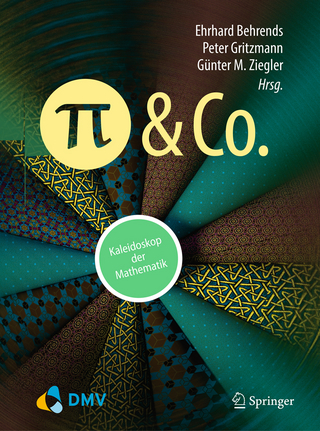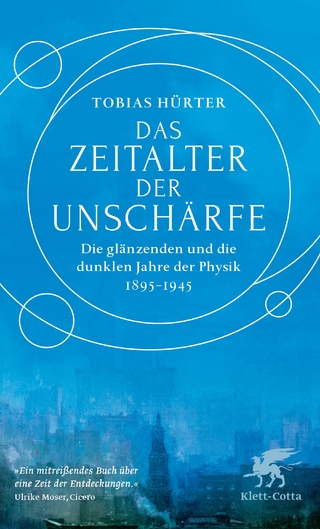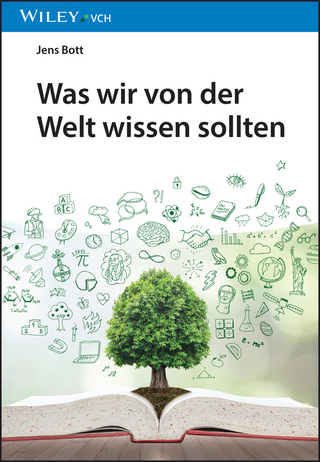
Eating Anthropocene
Springer Berlin (Verlag)
978-3-662-57055-5 (ISBN)
Science meets comics. Twelve illustrators from different cultural backgrounds take readers on a culinary journey through the continents, providing fascinating insights into a multitude of eating habits and food cultures from around the world. With its subjectively told and individually illustrated stories, this comic not only unveils human beings' varied use and management of available resources, it also sheds light on the effects of this approach on global material flows. Phosphorus plays a central role in this context due to its paramount importance for all living things.
Both the content and design of the comic are influenced by the advent of a new geological epoch - the Anthropocene, the Age of Man. Human activities across the globe are leaving increasing marks on the planet that will change it forever. The kitchen, especially, is a place where these correlations become evident on a personal scale. Indeed, just like the individuals depicted in this book, each one of us is a user and thus a sponsor of diverse production chains: in turn, each one of us has the opportunity to influence the world we live in.
Reinhold Leinfelder is Professor for Geology and Paleontology at Freie Universität Berlin, Principal Investigator at the Cluster of Excellence Image Knowledge Gestaltung at Humboldt-Universität zu Berlin and Founding Director of the Haus der Zukunft gGmbH in Berlin. His research focuses on the Anthropocene, coral reefs and new methods of knowledge transfer. Alexandra Hamann is the author of several science comics and leads the Agency for Science Communication and Educational Media MINT WISSEN in Berlin. Geologist Jens Kirstein and biologist Marc Schleunitz are research assistants at Freie Universität Berlin and also work at the Cluster of Excellence Image Knowledge Gestaltung at Humboldt-Universität zu Berlin. More detailed author information:Reinhold Leinfelder is Professor for Geology and Paleontology at Freie Universität Berlin, Principal Investigator at the Cluster of Excellence Image Knowledge Gestaltung (an interdisciplinary laboratory at Humboldt-Universität zu Berlin) and founding director of the Haus der Zukunft (House of the Future) in Berlin. His research focuses on the Anthropocene, coral reefs and new methods of knowledge transfer, which he also applies by conceptualising and curating interdisciplinary exhibitions and science comics. Leinfelder has held professorships at universities in Stuttgart (1989-1998), Munich (1998-2005) and Berlin (Humboldt-Universität, 2006-2012). He was Carson Fellow and Affiliate Carson Professor at the Rachel Carson Center of Ludwig-Maximilians-Universität (2011-2014). He also acted as General Director of the Bavarian Natural History Collections (2003-2005) and the Museum für Naturkunde (Museum of Natural History) in Berlin (2006-2010). He has addressed the Anthropocene and the future through exhibitions and other public formats, including "The Anthropocene Project" (Haus der Kulturen der Welt, Berlin, 2012-2014) and "Welcome to the Anthropocene" (Deutsches Museum, Munich, Dec. 2016 - Sept. 2016). Starting in Sept. 2014, he also co-created the Haus der Zukunft in Berlin. He was a member of the German Advisory Council on Global Change (WBGU) from 2008 to 2013 and is currently a member of the Anthropocene Working Group at the International Union of Geological Sciences.Alexandra Hamann has authored and published several science-based, non-fiction comics and is currently head of MINT WISSEN, a communications agency specialising in educational media and science communication in Berlin. Her work focuses on the visualisation of complex scientific and technical themes for educational purposes, and she engages on a regular basis with new and fascinating methods of knowledge transfer. In her opinion, the multidimensional nature of comics provides authors with a wide variety of possibilities to involve readers and encourage them to draw their own conclusions.Jens Kirstein is a geologist who currently works at Freie Universität Berlin. His research relating to the "Anthropocene Kitchen" project focuses on relevant historic, contemporary and future geological and geobiological resources, material flows and energy consumption in and around the kitchen. He is a graduate of the International Max Planck Research School for Global Biogeochemical Cycles and is currently working on his PhD at the Friedrich Schiller Universität in Jena. His thesis focuses on the landscape evolution of the Saale River Valley over the last 800,000 years, specifically with regard to carbonate rock weathering and mobilisation.Marc Schleunitz is a biologist who currently works as a research associate at Freie Universität Berlin. Prior to his work at the interdisciplinary laboratory known as the Cluster of Excellence Image Knowledge Gestaltung, he studied towards a Master's degree in biology and political science at Freie Universität, where he specialized in the field of ecology. In addition to his work on this comic, he also conducts broad research into the topic and future prospects of entomophagy (human consumpt
Phosphorus.- Uganda.- Morocco.- China.- Japan.- Indian.- Kiribati and Fidji.- Brasil.- USA.- Norway.- Germany.- Epilogue.
"An unorthodox approach to addressing this vital question in a new 'non-fiction science comic' ... . In a series of stories examining the connection between diet, use of resources, environmental degradation and climate change - from the discovery of fire to the industrialisation of food production - protagonists from five different continents highlight global trends through their favourite recipes." (Dominic Lenton, ET Magazine, eandt.theiet.org, February, 2017)
| Erscheint lt. Verlag | 15.6.2018 |
|---|---|
| Zusatzinfo | XI, 236 p. |
| Verlagsort | Berlin |
| Sprache | englisch |
| Maße | 168 x 240 mm |
| Gewicht | 522 g |
| Themenwelt | Sachbuch/Ratgeber ► Natur / Technik ► Naturwissenschaft |
| Naturwissenschaften ► Geowissenschaften ► Geologie | |
| Schlagworte | Anthropocene • cooking • Culture • Ecology • economy • Element cycles • Food • global change • Globalisation • Nature • Nutrition • phosphorus • resources • Responsibility • sustainability |
| ISBN-10 | 3-662-57055-6 / 3662570556 |
| ISBN-13 | 978-3-662-57055-5 / 9783662570555 |
| Zustand | Neuware |
| Informationen gemäß Produktsicherheitsverordnung (GPSR) | |
| Haben Sie eine Frage zum Produkt? |
aus dem Bereich


